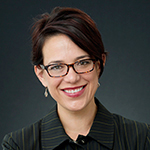By Amy Butler
 I’m wondering this week if we’re having enough difficult conversations.
I’m wondering this week if we’re having enough difficult conversations.
Horrible images on the news, protests in the streets, a growing awareness — if we didn’t know it before — that all is certainly not right with the world.
All of this should be sparking some very difficult conversations.
I don’t care who you are or where you fall in the landscape of our society, there are people on your Facebook page who are shocking you with what they’re posting. There are articles you’re reading that are making you uncomfortable — mad, even. You’re hearing things from people close to you that are touching deep and painful places in your own heart.
It’s past time for some difficult, difficult conversations.
Some feel paralyzed by the overwhelming problems our society is facing. Some prefer to turn off the television, cover their ears, and live like nothing is wrong. Some of us are surrounding ourselves with people who think like we do, working hard to convince ourselves we’re right.
All of those responses limit difficult conversations, keep our interactions distant, ideological, and (mostly) polite.
And we can’t do that anymore.
It’s time to jump in, feet first, to have the conversations that scare us. We need to hear unfamiliar and uncomfortable voices. We have to tell our own stories and our perspectives, even if we’re scared of criticism. We must dismantle the protections we’ve created so we can hear a truth we may have never considered … and be changed.
Because something big needs to change, but big changes start with little conversions: the sudden realization that the way I’ve always seen the world may not be the only way to see it; the dawning understanding that my experience is not universal; the peeling away of protections to welcome contrition when all along we’ve claimed no responsibility for the way things are.
All that is swirling around us now makes this a critical juncture in the life of our country. We’re looking to our leaders to help us make real and substantive change, to unearth and dismantle structures that are rotting our society from the inside out. How are they going to do that? It has to begin with difficult conversations.
America needs a process like South Africa’s Truth and Reconciliation Commission, a way to hear spoken the pain of racism in this country, to begin to say aloud the realities we live, to hear each others’ stories, to ask forgiveness for decades of racism and ethnic discrimination, and to begin to imagine a new future for our country. We owe it to our children, we owe it to each other, to tell the truth, to confess the considerable failure of our society, to have a national conversation that is deeply difficult.
Ours is a unique and beautiful country, a collection of disparate voices and perspectives that will either push us to band together with folks exactly like us, or do the hard work of hearing different voices, considering ways in which we might need to change, and then having the courage to make real and substantive shifts.
But none of that is going to happen until we start having some really difficult conversations.
